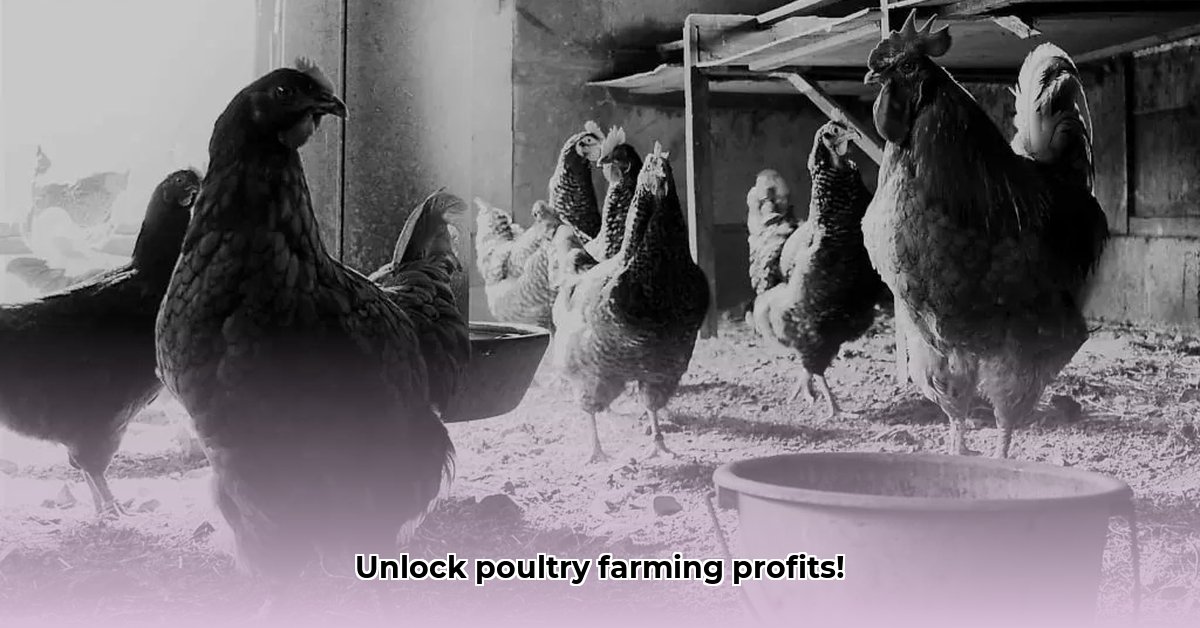
Choosing the right chicken breed – the right soort hoen – is crucial for successful farming, whether you're running a large-scale operation or a small backyard flock. This guide provides a step-by-step approach to selecting and managing chicken breeds in South Africa, ensuring your venture thrives.
Understanding Your Farming Goals: Meat, Eggs, or Both?
Before selecting breeds, define your primary objective: meat production, egg production, or a dual-purpose operation. This decision significantly influences breed choice.
Meat Production: Breeds like Cornish Cross are renowned for rapid growth and high meat yield, making them ideal for commercial meat production. Brahmas, while slower growing, offer robust birds with substantial meat.
Egg Production: Rhode Island Reds and Leghorns are prolific egg layers. Rhode Island Reds are adaptable and hardy, while Leghorns are known for exceptional egg-laying capacity but require more careful management.
Dual-Purpose: Orpingtons and Plymouth Rocks offer a balance of meat and egg production. They are versatile, but their yield in either category might not match specialised breeds.
Which type of farming aligns best with your vision and resources? This is the cornerstone of your success. A well-defined aim ensures efficient breed selection.
Popular Soort Hoen for South African Farmers
Many breeds perform well in South Africa's diverse climate. Here are some tried-and-true options:
Meat: Cornish Cross (rapid growth), Brahma (robust, good meat yield).
Eggs: Rhode Island Red (reliable, adaptable), Leghorn (high egg production).
Dual-Purpose: Orpington (calm, good meat and eggs), Plymouth Rock (reliable, adaptable, good all-rounder)
This list isn't exhaustive; your ideal breed depends on your specific requirements, resources and local conditions. What works well for one farmer might not be ideal for another.
Building Your Chicken Empire: A Step-by-Step Guide
Establishing a successful chicken farm requires careful planning and execution. Follow these steps:
Regulatory Compliance: Check local regulations and obtain necessary permits before starting your operation. Ignoring this crucial step can lead to significant problems later.
Coop Construction: Design and build a suitable coop, considering climate, predator protection, ventilation, and ease of cleaning. A well-designed coop ensures the safety and comfort of your flock.
Chick Selection: Source chicks from a reputable supplier. Look for healthy, active birds and don't hesitate to ask questions about their health and origins.
Nutrition: High-quality feed is vital for growth, egg production, and overall health. Choose a feed that meets the nutritional needs of your chosen breed and your budget.
Hygiene: Regular cleaning and disinfection are crucial for preventing disease outbreaks. Maintain impeccable hygiene to safeguard your flock's health.
Flock Monitoring: Daily checks allow for early detection of illness or injury, enabling timely intervention and preventing potentially devastating outbreaks.
Daily Chores and Best Practices
Daily care is paramount to a thriving flock.
Feeding: Provide appropriate feed and fresh, clean water regularly. Dehydration can be fatal for chickens, therefore ensuring a reliable supply of fresh water is paramount.
Cleaning: Daily cleaning of the coop and surrounding areas helps prevent diseases. A spotless environment promotes health and productivity.
Health Checks: Monitor your birds daily for signs of illness (lethargy, ruffled feathers, loss of appetite). Early detection is key to successful treatment.
Record Keeping: Track your birds' growth, egg production, and any health issues. Detailed records support efficient management and problem-solving.
Dealing with the Unexpected: Risk Management
Farming involves inherent risks. Effective risk management is crucial:
| Risk Factor | Mitigation Strategy |
|---|---|
| Disease Outbreaks | Vaccination, biosecurity (strict hygiene), quarantine of new birds |
| Predation | Secure housing, night-time security measures |
| Feed Price Fluctuations | Explore alternative feed sources, bulk buying |
| Theft | Secure fencing, surveillance systems |
Proactive measures significantly reduce the impact of potential issues.
Growing Your Business: Expanding Your Operation
Gradual expansion is key to sustainable growth.
Controlled Growth: Increase flock size incrementally as you gain experience and resources. Avoid rapid expansion which could overwhelm your capacity.
Process Optimisation: Regularly review your processes to identify and address inefficiencies. Continuous improvement is essential for long-term success.
Marketing Strategy: Develop a sound marketing plan to ensure a consistent market for your products, considering direct sales or partnerships with local markets.
This guide provides a solid foundation for successful chicken farming in South Africa. Remember that continuous learning and adaptation are critical to thrive in this dynamic field. Happy farming!